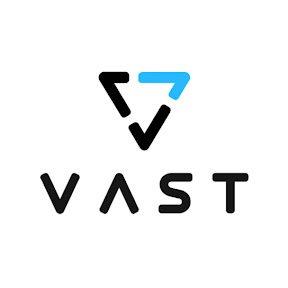Pure, Dell EMC, Backblaze, Vast Announce New Storage Products

Four storage vendors announced new products over the past week, here’s a news roundup:
Storage-as-a-Service vendor Pure Storage has announced FlashBlade Purity 3.0, a scale-out, all-flash platform for AI and analytics workloads that unifies file and object storage. Designed to share data across applications and workloads, the platform is built to reduce complexities resulting from siloed data, the company said.
Pure said the offering, available now, is suited for cloud-enabled architectures, such as Splunk SmartStore, and Vertica Eon Mode, used by analytics vendors. The company said its internal testing shows significantly faster query response performance over competitive object storage stores where compute and storage are disaggregated.
FlashBlade Purity 3.0 capabilities include:
 - File Replication: Enables the disaster recovery of file systems. Read-only data in the target replication site enables data validation and DR testing, Pure said.
- File Replication: Enables the disaster recovery of file systems. Read-only data in the target replication site enables data validation and DR testing, Pure said.
- Object Replication: Replication of object data between two FlashBlades is built for geographically distributed users in hybrid cloud infrastructures and is designed to provide lower access latency and increased read throughput, according to the company. Object replication can take place between FlashBlade and Amazon Web Services S3 storage enabling AWS to be used for a secondary copy. Pure also said it enables use of cloud-enabled architectures like Splunk SmartStore and Vertica Eon Mode to move data between on-premises FlashBlades and the cloud “and further unify … on-premises and analytics environments.”
“The new software has new replication capabilities for both files and for objects,” Pure’s Brian Schwarz, VP of Product Management, told us. “We're excited about the changes in modern analytics applications because they're a good fit for FlashBlade. Many customers are slowly but surely moving from file-based storage to object-based storage, and we can support both on the same platform at the same time.”
Meanwhile, Dell EMC announced its PowerStore mid-range storage platform utilizing a container-based architecture that the company said is up to 7x faster and 3x more responsive than its previous storage arrays of similar class. This the company attributes to an end-to-end NVMe design and support for “storage class memory as persistent storage” from Intel Optane SSDs.
 The product includes a new data access acceleration capability called AppsON, a built-in VMware ESXi Hypervisor that allows VMware virtualized workloads and software applications to run simultaneously. The platform supports management and orchestration frameworks, such as Kubernetes, Ansible and VMware vRealize Orchestrator, to streamline application development and reduce deployment timeframes, the company said.
The product includes a new data access acceleration capability called AppsON, a built-in VMware ESXi Hypervisor that allows VMware virtualized workloads and software applications to run simultaneously. The platform supports management and orchestration frameworks, such as Kubernetes, Ansible and VMware vRealize Orchestrator, to streamline application development and reduce deployment timeframes, the company said.
Dell EMC said the platform, available now, has machine learning capabilities that automate initial volume placement, migrations, load balancing, issue resolution and other tasks. Its CloudIQ storage monitoring and analytics software combines ML and human oversight for performance and capacity analysis and historical tracking, according to the company.
“Dell EMC PowerStore’s innovative AppsON capability gives us compute and enterprise-class storage in one system, simplifying our infrastructure while reducing our overall storage footprint,” said Heather Hitchcock, chief commercialization officer at Medical Informatics Corp. “It’s a critical feature as we’re helping hospitals rapidly expand bed capacity and creating flexible, scalable remote monitoring of data across connected devices.”
 Cloud storage provider Backblaze announced availability of APIs compatible with the AWS S3, enabling software vendors, developers and content creators to “instantly plug into Backblaze B2 Cloud Storage by doing little more than pointing their data to a new destination,” the company said, without writing new code or changing workflows.
Cloud storage provider Backblaze announced availability of APIs compatible with the AWS S3, enabling software vendors, developers and content creators to “instantly plug into Backblaze B2 Cloud Storage by doing little more than pointing their data to a new destination,” the company said, without writing new code or changing workflows.
Backblaze said more than a dozen software companies will support its APIs, including IBM Aspera, for data transfers and streaming; Veeam, for backup, recovery, and management of virtual and physical infrastructures; and Quantum, for capturing, creating and sharing digital content.
Also, Vast Data , having recently completed a $100 million Series C venture funding, launched Version 3 of its Universal Storage architecture with new features that include support for Windows and MacOS applications, cloud data replication and native encryption.
 The company said the updates allow enterprises to “marry all-flash performance with archive economics and scale to enable mission-critical and data-intensive enterprise production environments to consolidate their workflows and bring the power of flash storage and fast access to all of their data.”
The company said the updates allow enterprises to “marry all-flash performance with archive economics and scale to enable mission-critical and data-intensive enterprise production environments to consolidate their workflows and bring the power of flash storage and fast access to all of their data.”
Other new features include “Snap-to-Object” cloud-based backup, which allows customers to snapshot data to another Vast system, to an on-premises S3 storage system or to a cloud service. Vast said this eliminates reliance on a second data center for file and object data disaster recovery. The new version also encrypts data at rest using FIPS-class AES-256 when it is stored to 3D XPoint and QLC flash, Vast said, along with “Similarity-based Data Reduction” for unstructured data, which the company said is designed to make flash more affordable.










